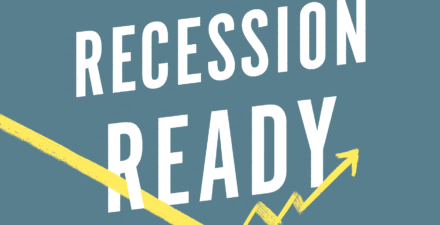Brad DeLong: Worthy reads on equitable growth, June 3-8, 2020
Worthy reads from Equitable Growth:
- Read “Elevating economic research on racist violence and exclusion in the United States,” in which Equitable Growth writes: “On May 25, 2020, a police officer murdered George Floyd in Minneapolis … one of the most recent murders of Black people either by law enforcement or by civilians who faced no immediate consequences … Ahmaud Arbery … Breonna Taylor … Tony McDade, David McAtee … far too many others… the unacceptable view of the expendability of Black lives … the undeniable harm caused by racism and the persistent damage that is present today … The violence and repression wielded against Black people, often carried out by authorities at all levels of government in the country or implicitly sanctioned by those same authorities, is deployed in order to minimize Black Americans’ political power and economic opportunity … It is impossible to understand our economy, our failure to ensure broad-based growth and stability, and the economic connections to social and political power without addressing these forces in our policy frameworks and policymaking. That’s why the Washington Center for Equitable Growth is elevating key empirical research … on incarceration and police militarization, as well as economic consequences of racist violence, exclusion, and disenfranchisement … Equitable Growth must still do much more.”
- A very smart piece from Iona Marinescu. One of the frequent complaints about unemployment insurance is that it is not compatible with job-search incentives. A cash bounty for those losing their jobs no matter whether they get quickly reemployed would eliminate this worry. Read her “Moving from Federal Pandemic Unemployment Compensation to a job losers’ stimulus program amid the coronavirus recession,” in which she writes: “My proposed policy, the job losers’ stimulus program, is a cash stimulus for workers who have lost their jobs regardless of whether they remain unemployed or find new employment. Compared to only providing higher unemployment benefits to the unemployed, the job losers’ stimulus program boasts the twin benefits of providing greater support to workers who have been most affected by pandemic-related job losses while also modestly increasing overall employment. The exact size of the impact of this new stimulus program is difficult to predict, but a simple policy simulation shows that it could increase the amount of stimulus by 34 percent and allow an additional 6 percent of workers to exit unemployment and return to work within 4 months of losing their jobs.”
- I am becoming increasingly skeptical of how much the unemployment rate, as the U.S. Census Bureau’s Current Population Survey questions are asked and answered, corresponds to the reality of our economy: Read Kate Bahn and Carmen Sanchez Cumming, “Equitable Growth’s Jobs Day Graphs: May 2020 Report Edition,” in which they write: “On June 5th, the U.S. Bureau of Labor Statistics released new data on the U.S. labor market during the month of May. Below are five graphs compiled by Equitable Growth staff highlighting important trends in the data. As the overall unemployment rate declined to 13.3 percent, this was led by a decline in white unemployment from 14.2 percent to 12.4 percent. Meanwhile, Black unemployment increased slightly from 16.7 percent to 16.8 percent and Hispanic unemployment declined from a historic high of 18.9 percent to 17.6 percent … Employment across sectors began to rebound in May, and growth was led by leisure and hospitality after this industry lost nearly half of all employment in the prior month … After the most extreme decline in employment levels in history in April, the prime-age employment rate moved upward in May to 71.4 percent.”
Worthy reads not from Equitable Growth:
- I am writing before this event has taken place. But I am extremely confident that it will be—was—very interesting and very useful: Watch “Recession Ready: Fiscal Policy Options to Support Communities and Stabilize the Economy,” on Monday, June 8, 2020 from 2:00-3:00 p.m. EDT: “The Hamilton Project at The Brookings Institution and the Washington Center for Equitable Growth will host a webcast discussing the importance of expanding aid to state and local governments as part of the continued fiscal policy response to the COVID-19 pandemic. The webcast will begin with a fireside chat with Rep. Don Beyer, vice chair of the U.S. Congress Joint Economic Committee, and Heather Boushey of the Washington Center for Equitable Growth. The webcast will also include a roundtable discussion between Jason Furman of Harvard University, former Mayor of Philadelphia Michael Nutter, and Jay Shambaugh of The Hamilton Project. The webcast will coincide with the one year anniversary of the release of The Hamilton Project and Washington Center for Equitable Growth book Recession Ready: Fiscal Policies to Stabilize the American Economy.






